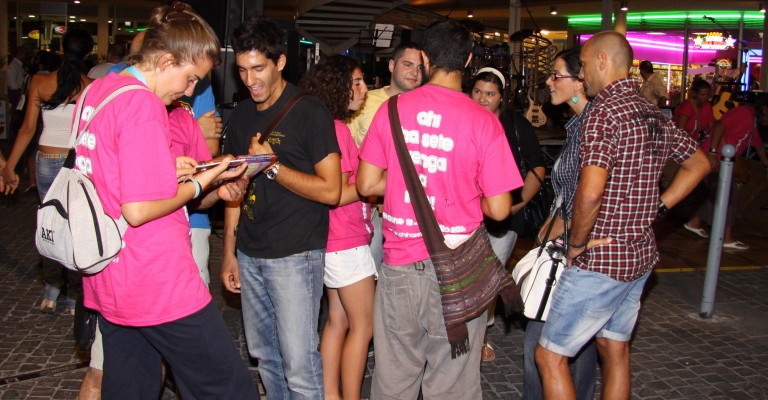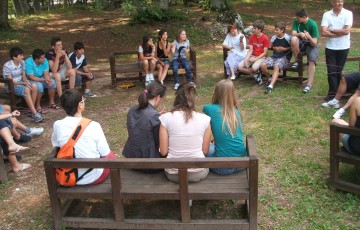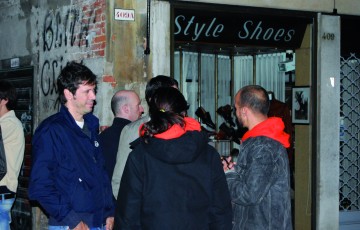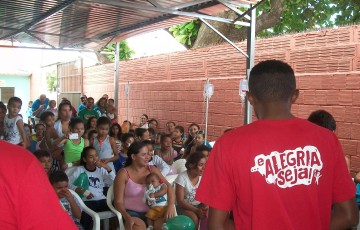What has been fundamental is the contribution of the young people taken into the communities who, having come from the world of the streets, after having undergone a journey of rebirth and inner rebuilding, offer themselves as the most convincing interlocutors for other young people.
The new horizons community draws on many years of experience in the field and has set up numerous teams that are involved in various prevention and awareness projects. It has also structured an intervention methodology that is especially suitable for particularly difficult walks of life such as marginalization, social hardship, and the old and new addictions.
Street missions
One particular initiative that has been taking shape over time, proving to be especially effective, is that of the street missions: for several consecutive days, an established team, assisted by young volunteers and young people who have come themselves from the ‘life on the streets’, bombard a previously designated area, coming into contact with the young people there through dialogues, street entertainment, shows, meetings, testimonies, and more. This always comes about in synergy with the various realities operating in the territory, also to arouse new models of intervention and to be at the service of the usual social and ecclesial fabric. The enthusiasm and joy of the ‘missionaries’ arouses the desire in many young people to change their lifestyle and to undertake a new path of life and rehabilitation.

ACTIVITIES
This endeavour is currently developed across several fronts:
- everyday work on the streets in ‘hot spots’ like stations, subways, public squares and parks, nightclubs, discos, pubs;
- extraordinary activities for prevention, awareness-raising, formation; street entertainment and performances; activities that are more localised and specific, lasting a few days;
- school projects for prevention and awareness-raising about juvenile distress and delinquency;
- participation and testimonies at gatherings, meetings, debates, and roundtables;
- workshops for theoretical and experiential formation, aimed at prevention and at specific modalities of intervention;
- fixed and mobile Listening Centres;
- dialogues for reception and guidance.








